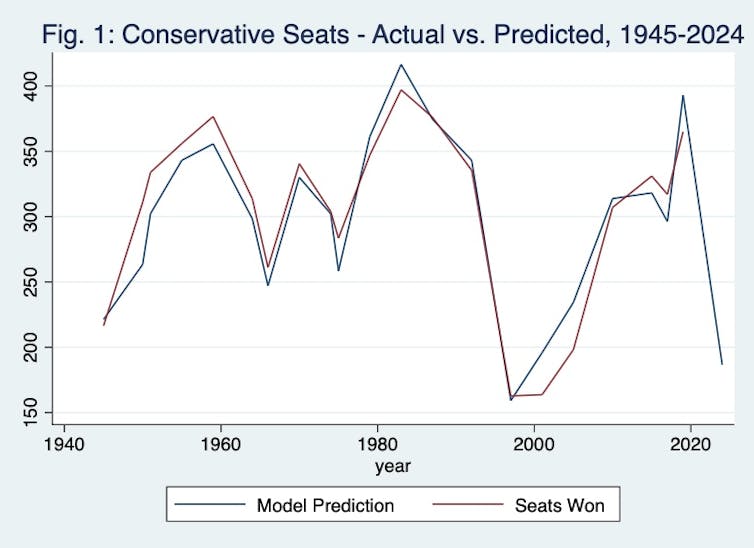British Prime Minister Rishi Sunak’s election call for July 4 was a surprise. Since the government could stay in power another six months and have an election in early 2025, why did Sunak opt to go early? It’s unlikely the early call provides some unique opportunity to extend the Conservative Party’s rule yet again. Rather, a big loss is inevitable, and Sunak is perhaps being wise by getting this behind him and avoiding even worse outcomes such as losing the confidence of his party before an election.
Avoiding a catastrophe might be the best Sunak can hope for. Read more: Rishi Sunak and Keir Starmer's first election debate: the facts behind the claims The concept of a political pendulum suggests that the public’s preferences swing back and forth between major parties in a predicable fashion. One party takes over, consolidates power, likely wins additional elections but inevitably loses favour with voters while the other party rises in the polls and ultimately takes power back.

This is a pattern seen in many democracies — after a while, the public is ready for a change. Usually, the timing of the swing is predictable. After 14 years in office, the pendulum is swinging hard away from the Conservative Party.
My American colleague Helmut Norpoth and I developed the PM and the Pendulum model , which has been successfully forecasting British elections since 2005. For the 2005 election, the model forecasted a Labour lead of 132 seats over the Conservatives — close to th.
















